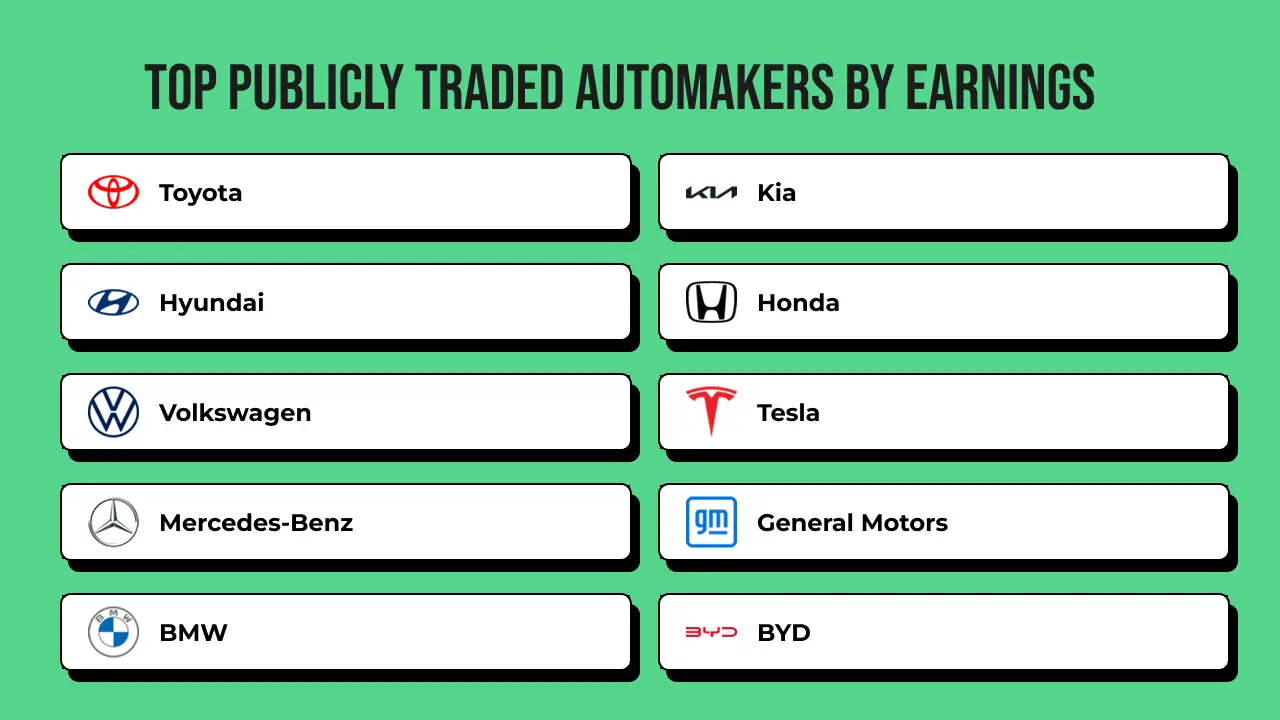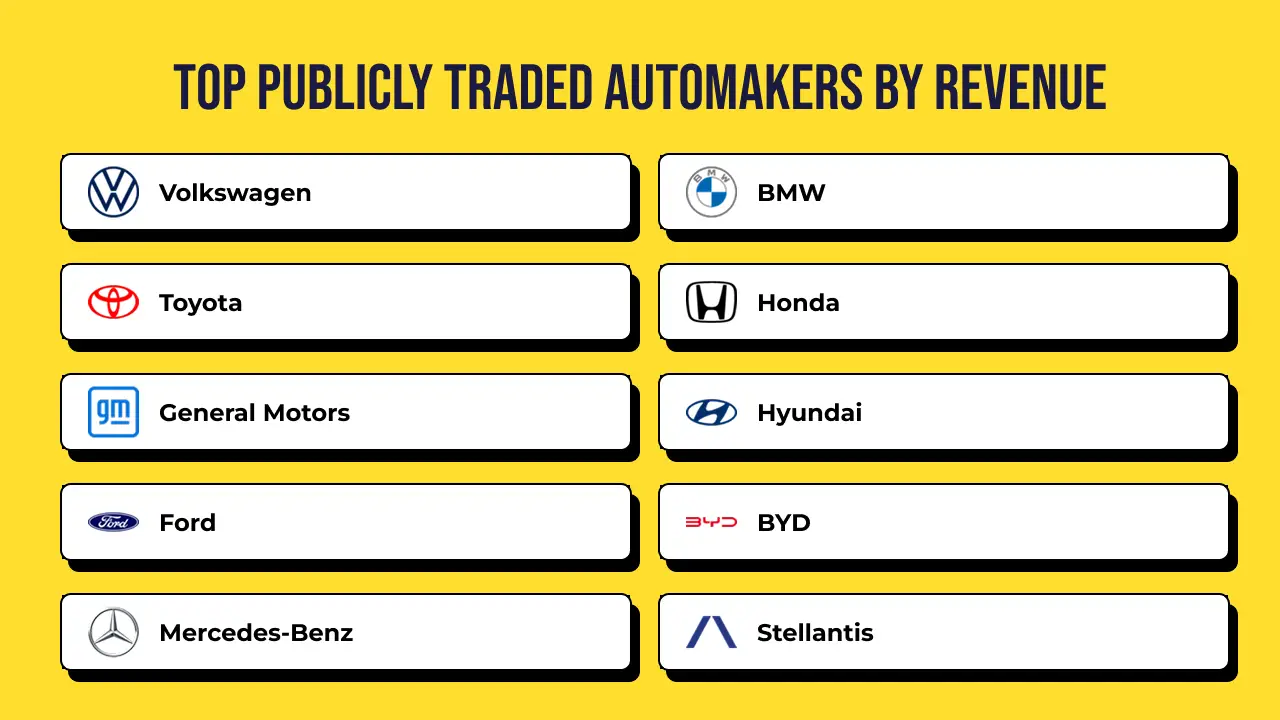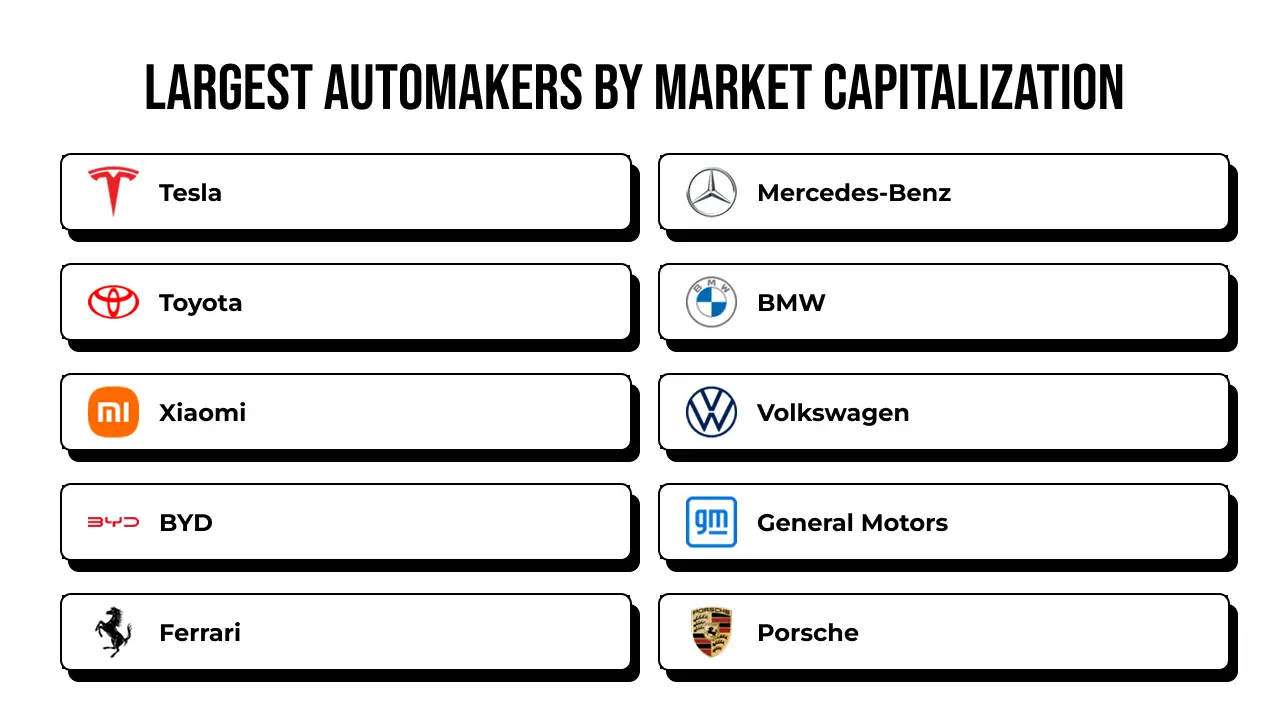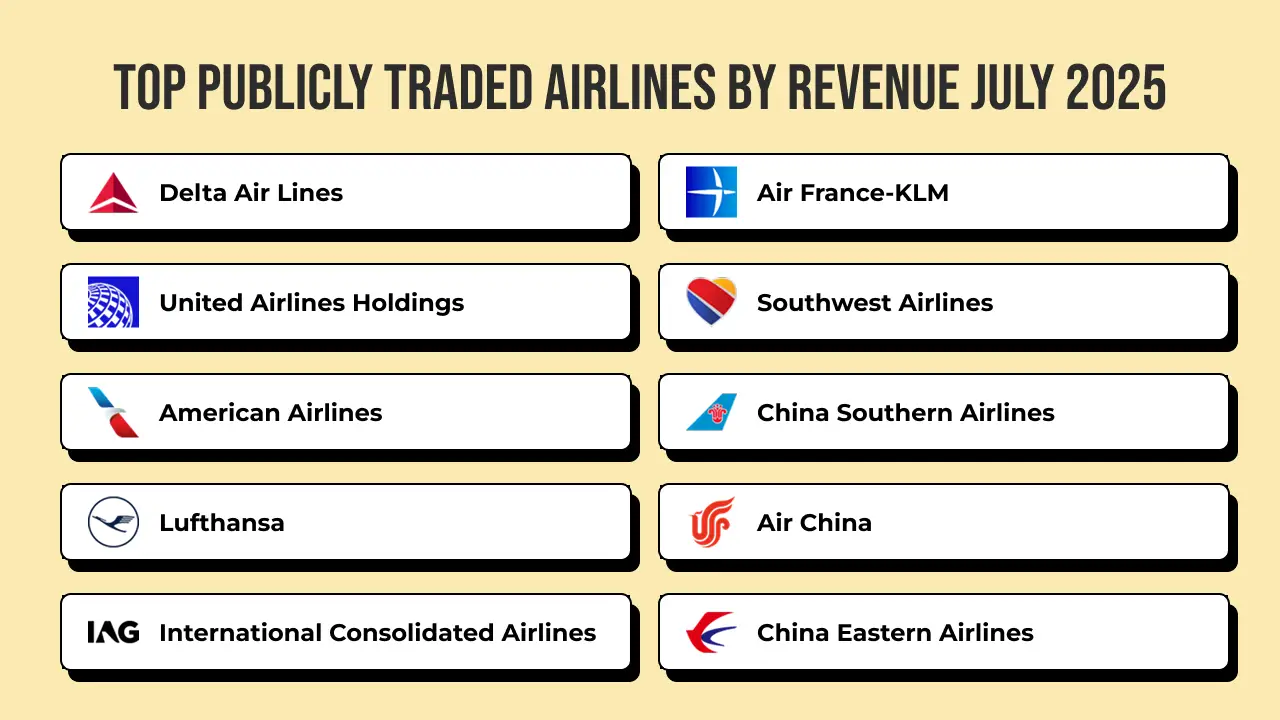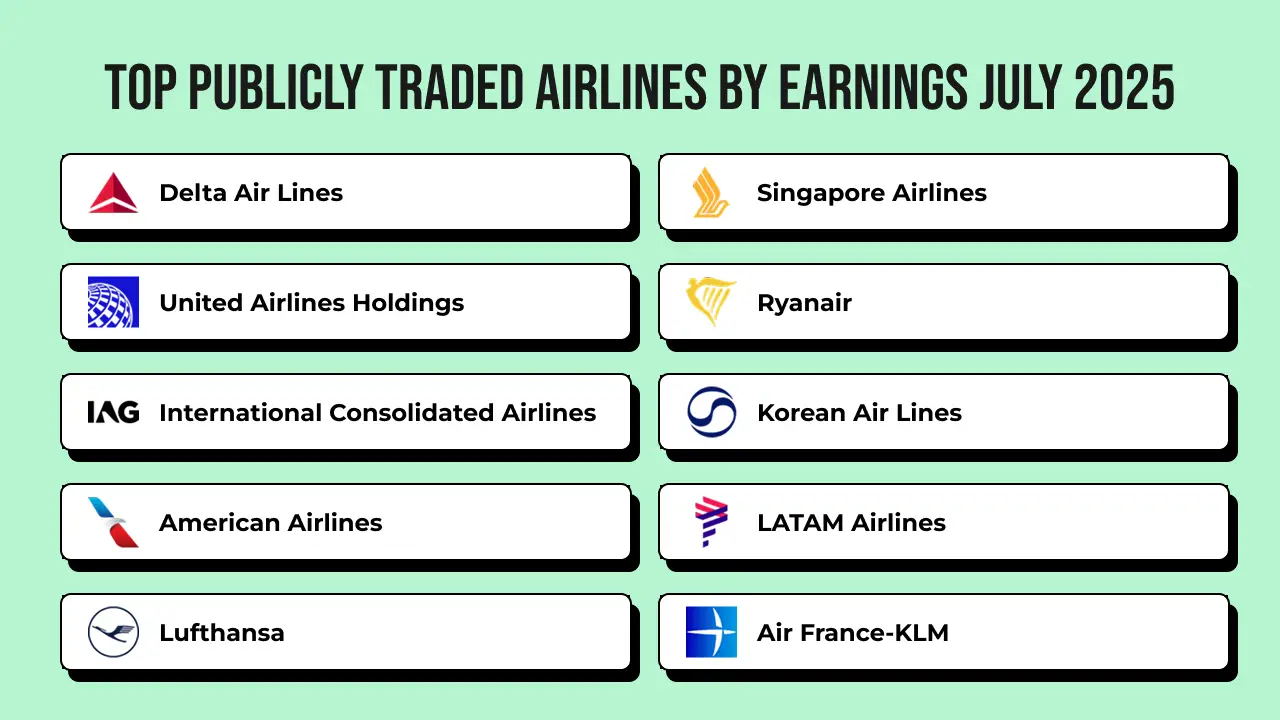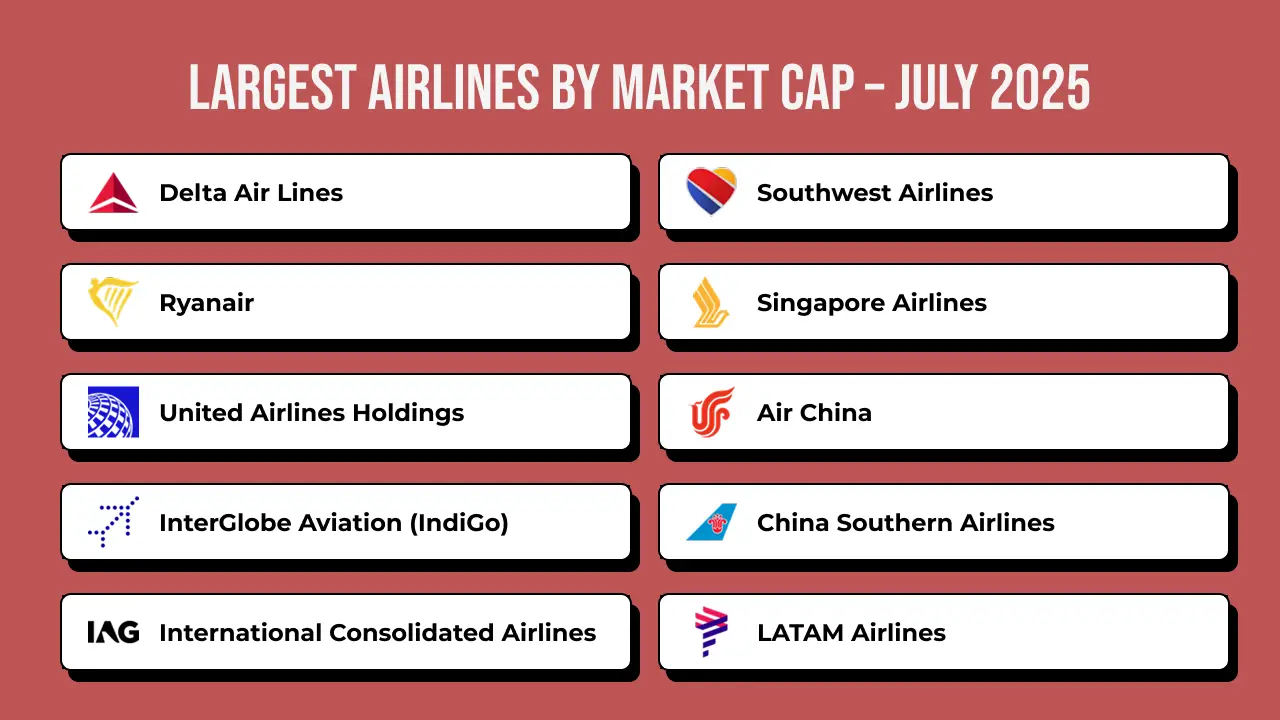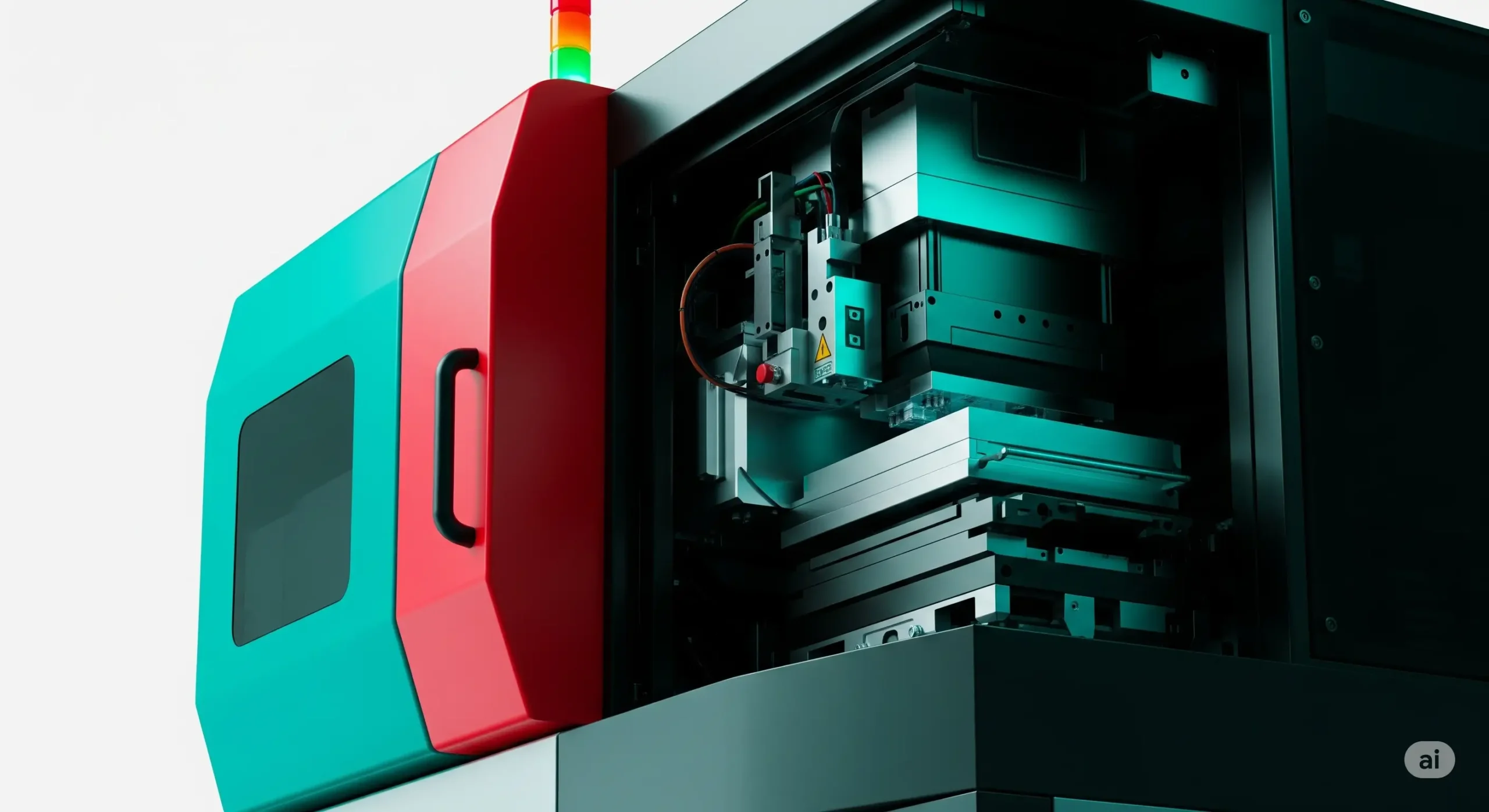The global automotive industry continues to demonstrate remarkable resilience and profitability despite ongoing challenges from supply chain disruptions, semiconductor shortages, and the transition to electric vehicles. As of July 2025, the earnings landscape reveals a diverse mix of traditional powerhouses and emerging players, with Toyota maintaining its dominant position at the top of the profitability charts.
Top 10 Automakers by Earnings
| Rank | Company | Earnings | Country |
|---|---|---|---|
| 1 | Toyota | $41.90 B | Japan |
| 2 | Hyundai | $15.82 B | South Korea |
| 3 | Volkswagen | $15.79 B | Germany |
| 4 | Mercedes-Benz | $14.14 B | Germany |
| 5 | BMW | $11.25 B | Germany |
| 6 | Kia | $11.22 B | South Korea |
| 7 | Honda | $8.44 B | Japan |
| 8 | Tesla | $8.39 B | USA |
| 9 | General Motors | $8.37 B | USA |
| 10 | BYD | $7.94 B | China |
Toyota’s commanding lead with $41.90 billion in earnings underscores the Japanese automaker’s exceptional operational efficiency and global market penetration. The company’s hybrid technology leadership and strong presence in key markets worldwide have enabled it to maintain profitability even as the industry undergoes significant transformation. Toyota’s earnings dwarf those of its closest competitors, with the gap between first and second place being more than $26 billion, highlighting the company’s superior scale and profit margins.
The presence of three German luxury manufacturers in the top ten—Mercedes-Benz, BMW, and Volkswagen—reflects the continued strength of premium automotive brands in generating substantial profits. These companies have successfully leveraged their brand equity and technological innovation to command higher margins, particularly in the luxury vehicle segment. German automakers collectively represent a significant portion of the industry’s total earnings, demonstrating the enduring appeal of German engineering and luxury positioning.
Asian manufacturers dominate the upper echelons of automotive profitability, with Japanese and South Korean companies claiming six of the top ten positions. Hyundai and Kia’s strong performance, with earnings of $15.82 billion and $11.22 billion respectively, showcases the South Korean automotive industry’s remarkable evolution from budget alternatives to serious competitors across all market segments. Honda’s $8.44 billion in earnings reflects its balanced approach to both traditional internal combustion engines and hybrid technologies.
The inclusion of Tesla and BYD in the top ten represents the growing influence of electric vehicle specialists in the global automotive landscape. Tesla’s $8.39 billion in earnings demonstrates that the company has successfully transitioned from a startup to a major automotive player, while BYD’s $7.94 billion reflects China’s rapid advancement in electric vehicle technology and manufacturing. This shift signals a fundamental change in the industry, where traditional automakers must compete not only with each other but also with technology-focused companies that have reimagined vehicle design and manufacturing processes.
Despite the overall positive earnings picture for leading automakers, the industry continues to face significant challenges, including the ongoing transition to electric vehicles, changing consumer preferences, and increasing regulatory pressure for environmental compliance. The success of companies like Tesla and BYD indicates that the future of automotive profitability will increasingly depend on innovation in electric powertrains, autonomous driving technology, and sustainable manufacturing practices. As the industry continues to evolve, the earnings rankings may see further shifts as traditional automakers adapt to new market realities and emerging companies scale their operations.

